On the weekend, I went to Jiande on the bank of the Xin 'an River to have a look at the thousand-year-old ginkgo and a story that has been told for thousands of years. Jiang Qingyue is close to people.
order
The source of the Qiantang River is called Xin 'an River.
The Xin 'an River was called Zhejiang in ancient times.
The flowing Xin 'an River surged thousands of miles from the Tong River and Fuchun River, and finally merged into the vast Qiantang River.
In this thousand-mile-long river basin and tens of millions of years, this Zhejiang River has nurtured countless creatures on both sides of the Taiwan Strait, and literati and literati from past generations have also left many masterpieces by her side.
Ginkgo leaves fell, and I came by the wind. In the middle of the golden tourist route from Hangzhou-Qiandao Lake-Huangshan, Jiande on the banks of the Xin 'an River, in the upper reaches of Qiantang River, I took a look at the late autumn.
There is a mountain in Jiande called Daciyan.
In terms of autumn scenery, I am afraid it will be difficult for Jiande to find a second place that can compete with Daciyan, right?
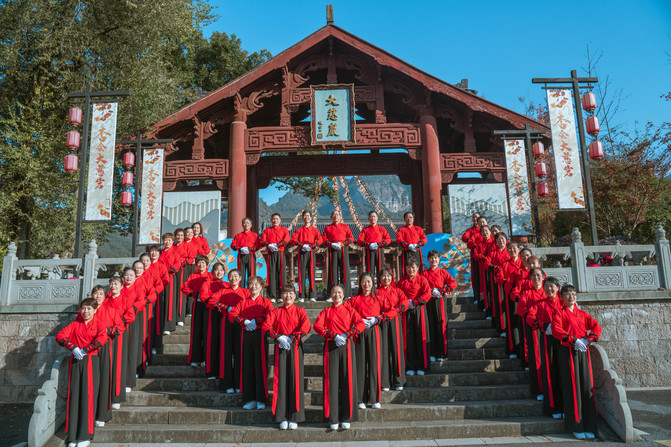
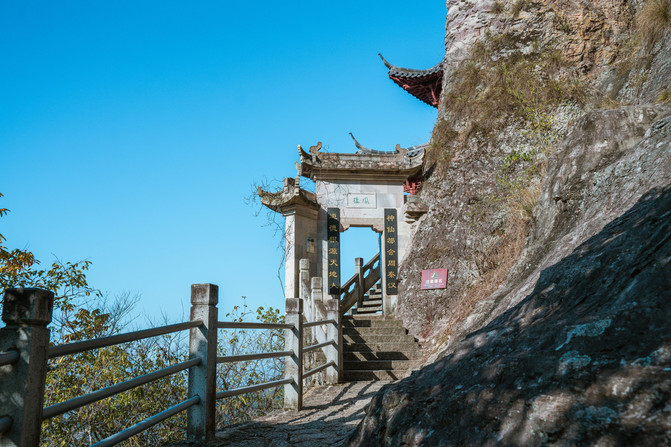

In the history of ancient Chinese architecture, there is an amazing architectural wonder-Xuankong Temple.
With their astonishing wisdom and creativity, the ancients built an imposing temple and plank road on a cliff, hanging on one side and embedding on the other.
Even if you look at the foot of the mountain, you will feel that there are two battles.
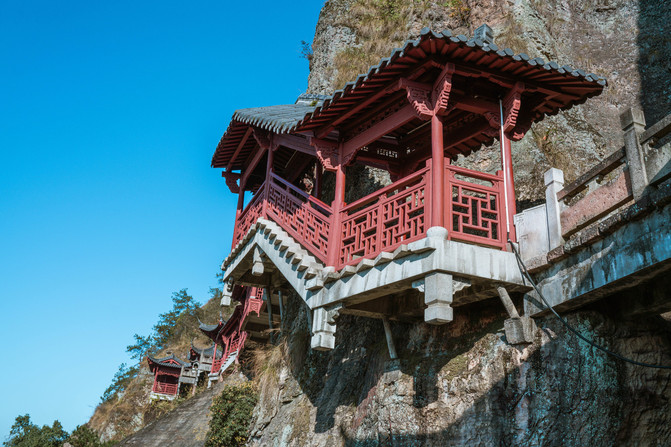
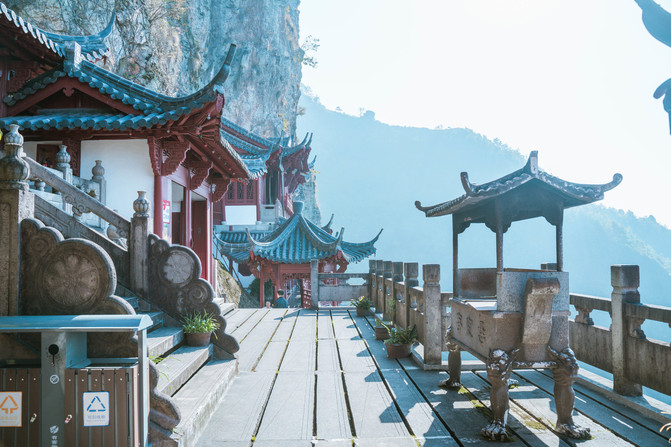
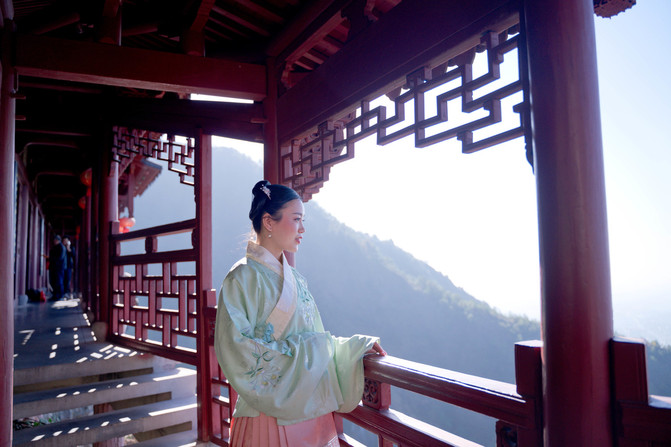
Even with the length of five thousand years of Chinese civilization and the vastness of 90,000 miles, there are not many such hanging temples.
There are ten in the north and five in the south, making a total of fifteen in the country. Compared with the tens of thousands of temples and nunnery in the country, they are rare.
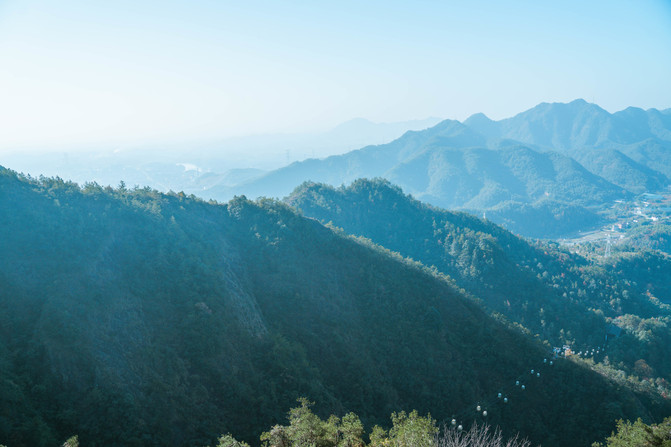

In ancient times, skilled craftsmen were able to build miracles on cliffs hundreds of meters high that are enough to amaze today. Although these 15 suspended temples are different, they have one thing in common: "strange, hanging, and clever."
The closer I get, the more shocking it becomes.
As the only Hanging Temple in East China, the vertical height of Daciyan Hanging Temple is more than 60 meters higher than the Hanging Temple in Hengshan.
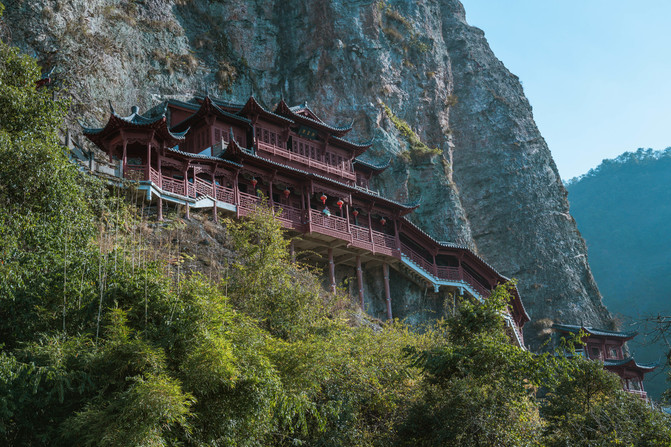
Daciyan is 586 meters above sea level. Although the mountain is not high, it is graceful and graceful. It is exactly what Liu Yuxi said: The mountain is not high, but if there are immortals, it will be spiritual.
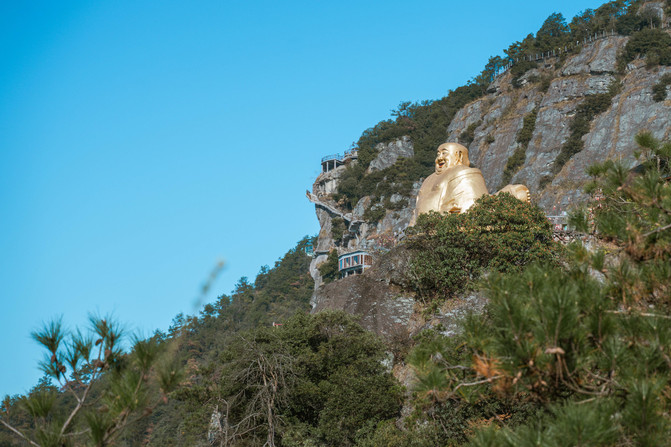
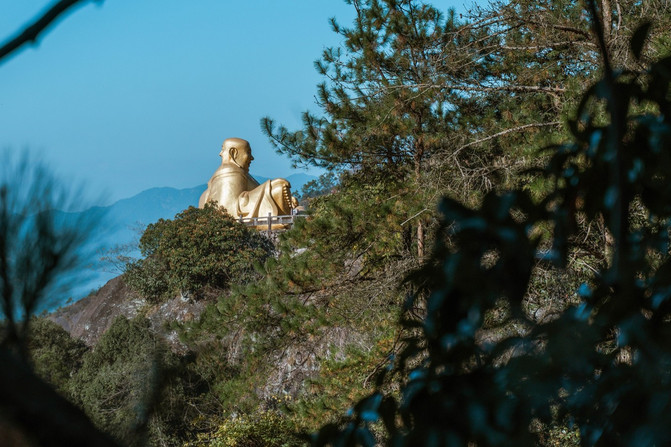
This immortal is a Buddha.
There is a double-faced golden body of a smiling Maitreya Buddha on Daciyan, sitting among the mountains.

However, the Buddha I am talking about does not mean the Buddha statue in front of me, but Daciyan itself.
The mountain is a Buddha, and the Buddha is a mountain.
The main peak of Daciyan is majestic and magnificent. It looks like a giant natural Buddha with a clear face and realistic facial features, but it has not been artificially carved.
Identified by the China Society of Tourism Geosciences, Daciyan is by far the largest natural Buddha discovered in my country.

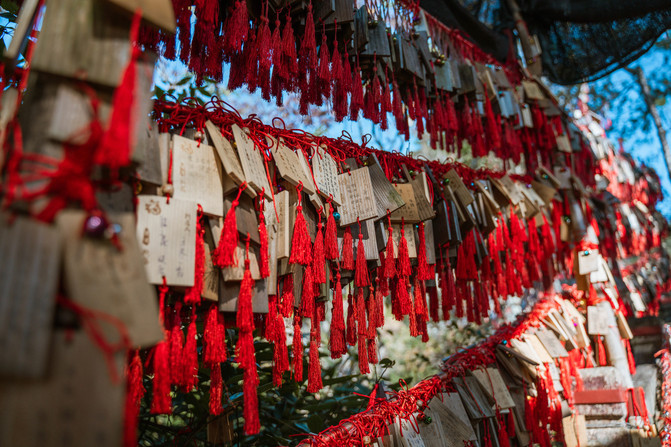
Of course, I am already on the mountainside, and the entire Buddha cannot be photographed.
As for the details of the five senses, you have to be far away to distinguish them.
No problem, it's also good to see the strange rocky mountain scenery.


Passing through the long trestle and climbing all the way up, the leaves in the mountains have not yet turned yellow.
The protagonist of autumn in Daciyan is still ahead.



The stream in front of you flows from Yuhua Lake in the mountaintop valley.
Mountains and rivers coexist together, winding into streams among rocks, trickling into springs among rocks, or flowing into waterfalls among cliffs.
Either rapid or slow, bright or dark, winding from the top of the mountain into a long valley stream of more than 880 meters. It is the most beautiful scenery in Daciyan.

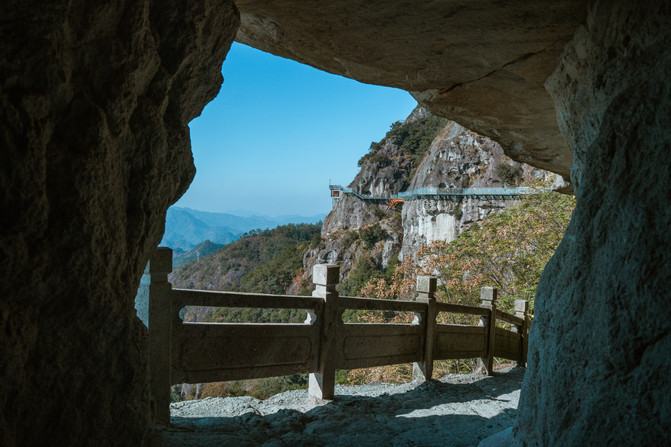
Walking up the steps along the plank road on the cliff, the wind from the mountains roared in and away again.
Free and free.


It is another autumn wind of the year, and fallen leaves fill the south of the Yangtze River with the wind.

Autumn in the world is known when a leaf falls. The ancient ginkgo trees, which are more than 700 years old in the Apricot Fragrance Zhai in Daciyan, have reached the season of falling leaves again.
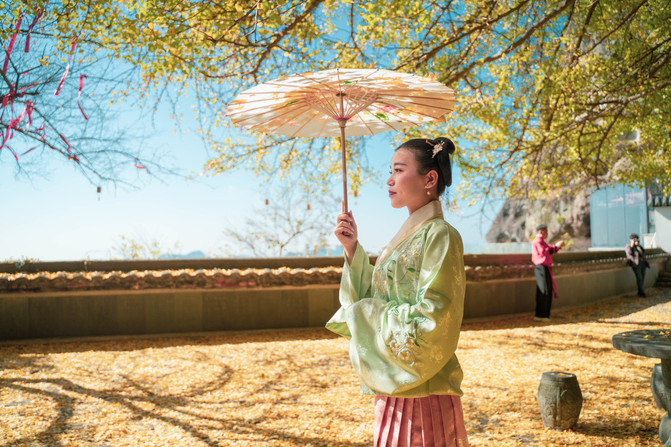

The most beautiful spring is in the falling cherry blossoms, and the most beautiful autumn is in the flying ginkgo leaves.
When a gust of wind comes, the golden ginkgo leaves fall across the sky, and autumn cannot stop, sighing and parting.




The sun shines through the gaps between the branches and leaves, and slides across your cheeks, warm and soft.

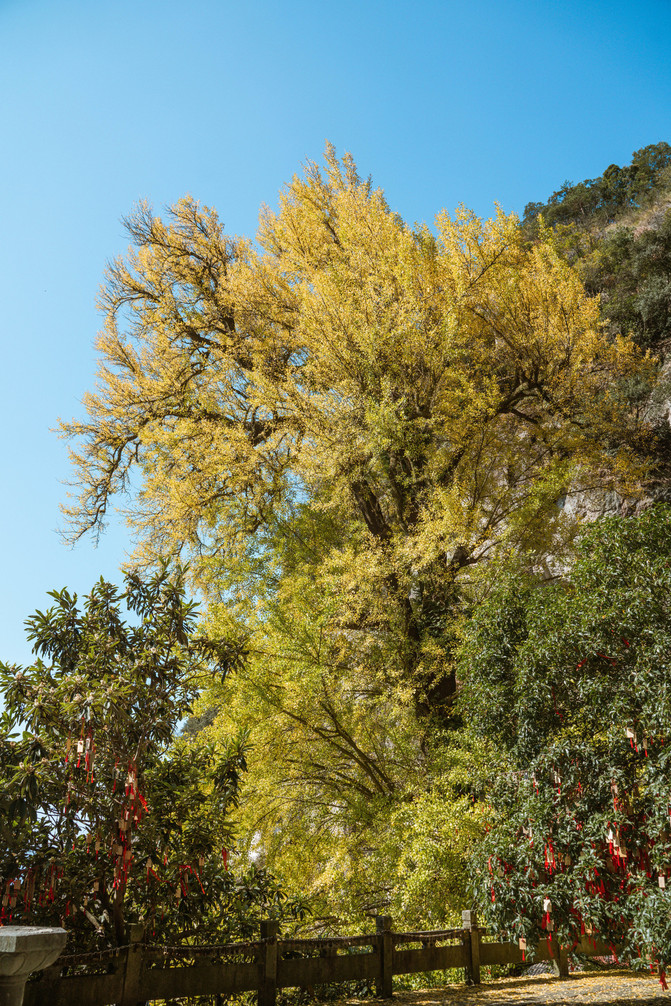
Looking up, half of the sky was filled with golden ginkgo.
The ginkgo tree lives the same as the hanging ancient temple. Looking down on Jiande for seven hundred years, it has long become like pavilions.
The monks who planted trees back then would have never imagined that today's ancient ginkgo tree could support Jiande for half of the autumn on its own.

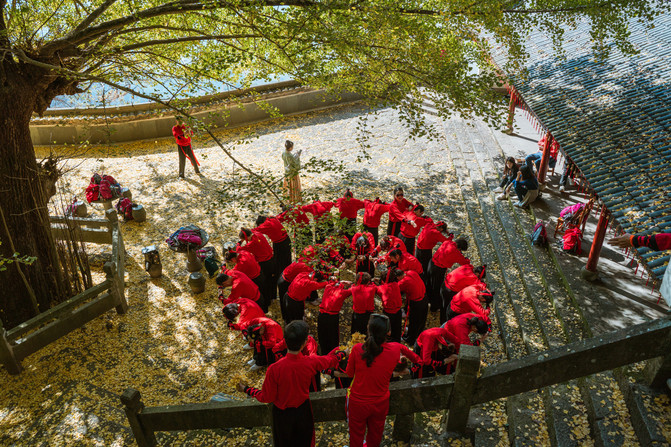
Pick up a ginkgo leaf and rub the veins on it like time. I still remember you once said that when ginkgo leaves, it is autumn.

The wind came through the mountains and the water, and the long sound echoed in the empty valley, like a far-reaching Li Song.

There are not only cliff plank roads on Daciyan, but also glass plank roads connecting Feiyun Pavilion and Lotus Valley.
There is a viewing platform in the middle of the glass plank road, which can overlook the breeze and flowing clouds, and the four seasons among the mountains.


Tour Xin 'an River at night and listen to the moon telling ancient stories
For thousands of years, the flowing Xin 'an River has nurtured countless lives on both sides of the Taiwan Strait, and has also attracted countless literati and literati to leave many moving legends and songs passed down from generation to generation.
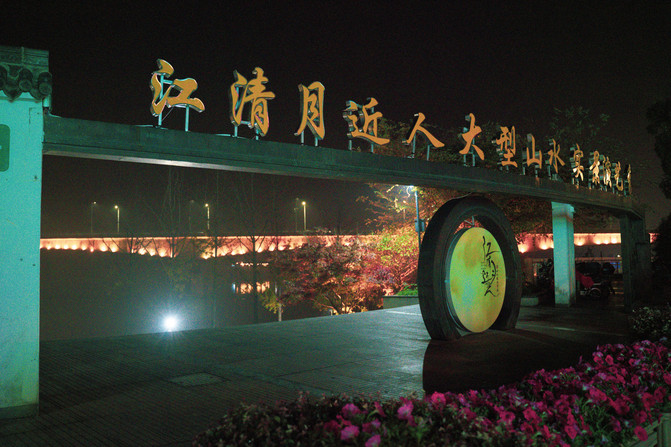

Yan Ziling sat firmly on the fishing platform and watched the mountains and rivers watch the four seasons. Li Bai wrote poems praising the clarity of the river. However, the most artistic and philosophical thing was Meng Haoran's "Staying in the Jiande River".
Move the boat to Yanzhu, and guests worry about new ones at dusk.
The wild sky is open and the trees are low, and the river is clear and the moon is close to you.
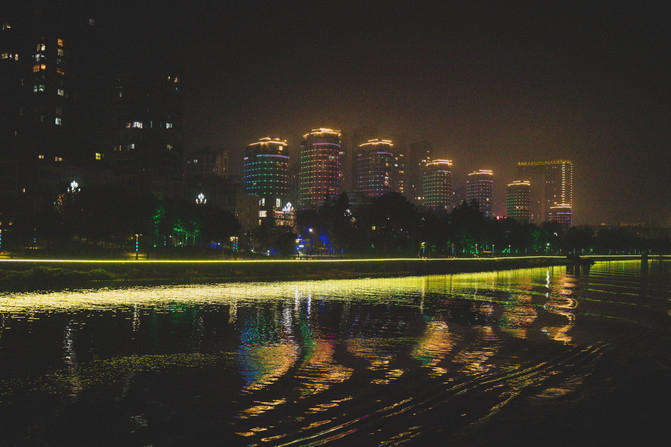

Thousands of years have passed, and the wilderness has also developed into a modern city. The night scenery on both sides of the Xin 'an River is blurred, and the evening breeze is intoxicating.

The sandbar filled with smoke in the moonlight has now been built into the Xin 'an River Moon Island.
The most moving scenery on the island is this large-scale immersive live-action performance "Jiang Qingyue Near People", which allows a bright moon to tell the ancient poems and stories that Jiande has recited for thousands of years.
Watching the Qingjiang and the bright moon in the fog, for thousands of years in a flash. Looking back, the world has changed.

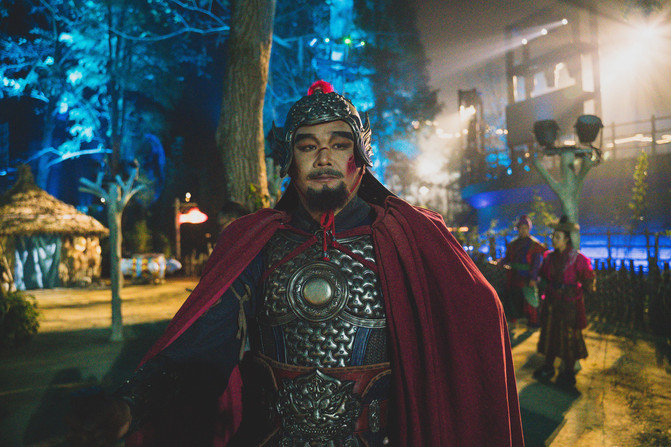
First realm: Jiang·The beginning of the deer hunting.
In ancient times, Jiande was still the boundless wilderness at that time.
There was a sudden sound of spring thunder, all things came to life, and wild deer ran freely among the vegetation. The primitive ancestors who once drank hair and blood learned to make fires and use tools. This fertile soil along the Xin 'an River gradually became the home of the Jiande ancestors.

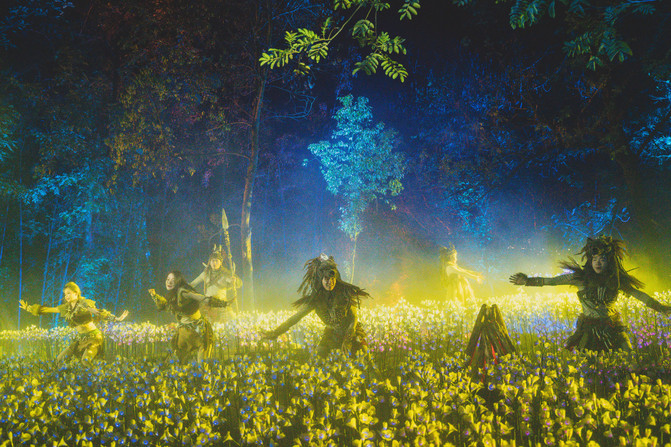

Second Realm: Qing·Leshan Leshui
Since ancient times, there have been many hermits in famous mountains, and Yan Ziling in the Eastern Han Dynasty is a legend among them.

Yan Guang, also known as Ziling, was a Taoist scholar, litterateur, and thinker called "Yan Zi" in the world. He was born in Yuyao, Kuaiji.
He became very famous when he was young. Later, he studied in Chang 'an and became a classmate of Liu Xiu, Emperor Guangwu of the Han Dynasty.
After Liu Xiu defeated Wang Mang and ascended the throne, he hired Yan Ziling to serve as an official in the court many times. Yan Ziling refused to accept his resignation and retired to Fuchun Mountain incognito to die.
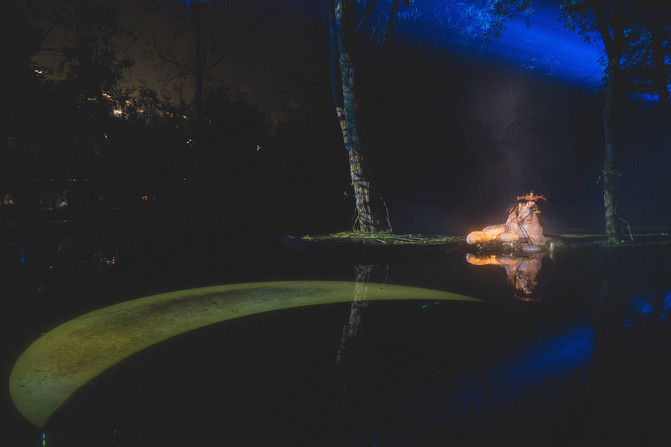

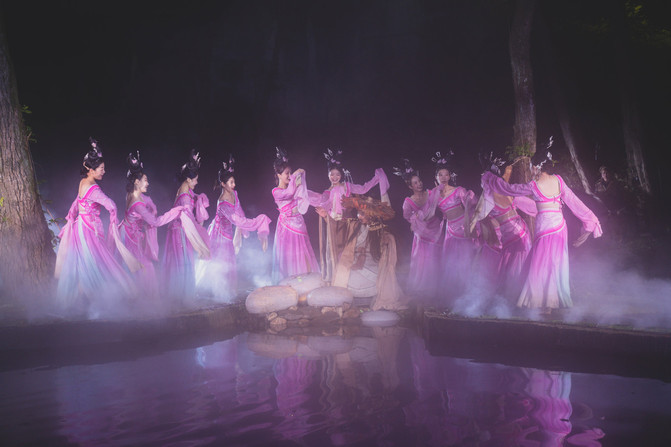
For thousands of years, Yan Ziling's integrity of viewing wealth as a floating cloud has become a monument in the hearts of literati and literati of generations.
Fan Zhongyan once expressed his admiration in "Notes on Mr. Yan's Ancestral Hall" by saying that "the mountains are green, the rivers are vast, and the mountains are high and the rivers are long".
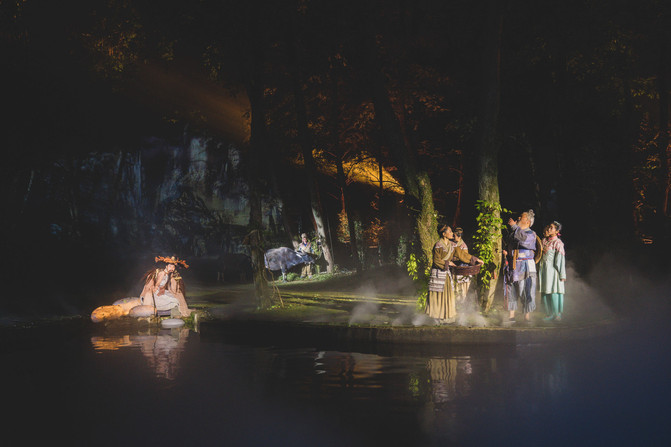
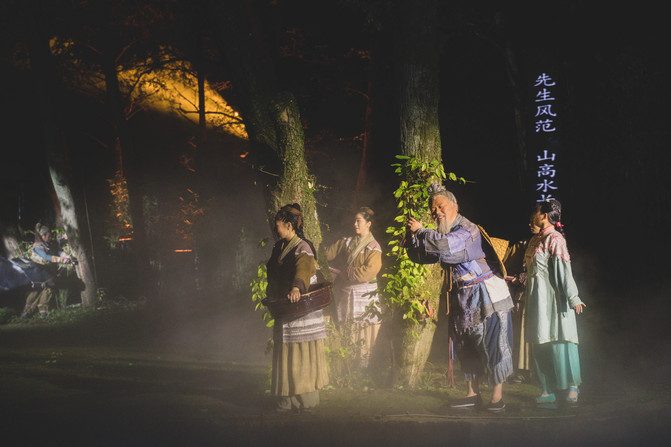
During the performance, Yan Ziling wore a bamboo hat and coir coat, fishing alone in the river, watching the seasons change and the stars and stars flow.
The dialogue with the egret at the end interprets the hermit's voice of enjoying mountains and rivers.


Three Realms: Moon·Road Tang Poetry
The southeast is Xingsheng, the capital of Sanwu, and Qiantang has been prosperous since ancient times.
Smoke willows paint bridges, wind curtains and green curtains, and hundreds of thousands of homes are scattered.
After the Tang Dynasty, the area from the Xin 'an River to the Qiantang River became increasingly prosperous. Especially after the Grand Canal was dug and opened, Yuhang became a famous county in the southeast.
The poems, paintings and landscapes on both sides of the Xin 'an River have also been engraved in Tang and Song poems.
There are two Tang poetry roads in Zhejiang, one is on Tiantai Mountain of Caoe River in eastern Zhejiang, and the other is on Xin 'an-Qiantang.
Mountains, rivers and pastoral areas are all in poetry.
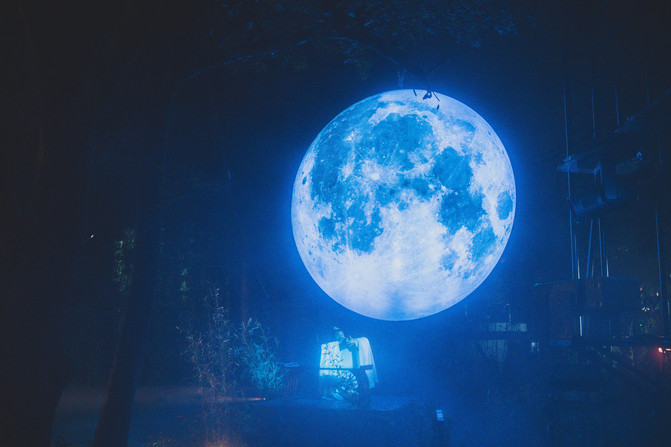
In the previous scene, Yan Ziling walked slowly on his shoulders. After passing through a cloud and mist, he became Meng Haoran, a representative poet of the mountains and rivers of the Tang Dynasty and the pastoral school.
On the other side, the poet immortal Li Bai rode the wind and invited the moon. Pages of poems were opened on the ground, and poems danced in the air, like a hundred flowers blooming, and lotus flowers were born step by step.
The background sound is Meng Haoran's song "Staying in the Jiande River".

Four Realms: Near·Return in the Wind
Meng Haoran and Li Bai walked gracefully. When they passed through a city wall, what appeared again were the fugitives in panic.
The performance also entered the fourth act.


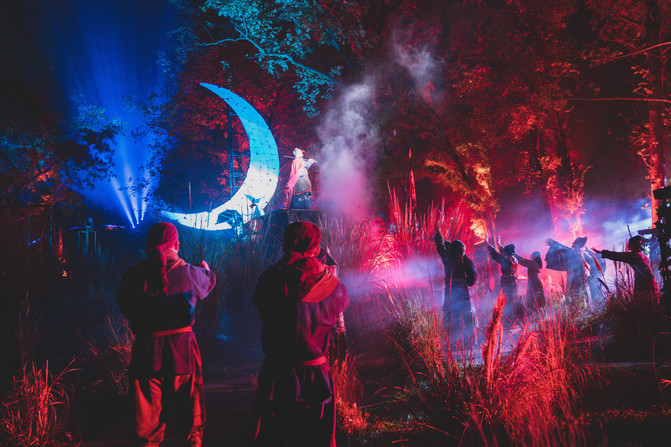
At this time, the war and horses were in chaos, and the flames were high, making it a scene of troubled times.
A caravan of Huizhou merchants was moving forward in a panic in the flames of war. Suddenly, a fire lit up in front of them, and standing on the city wall was Chen Youliang, a hero of his generation who had reached his end.

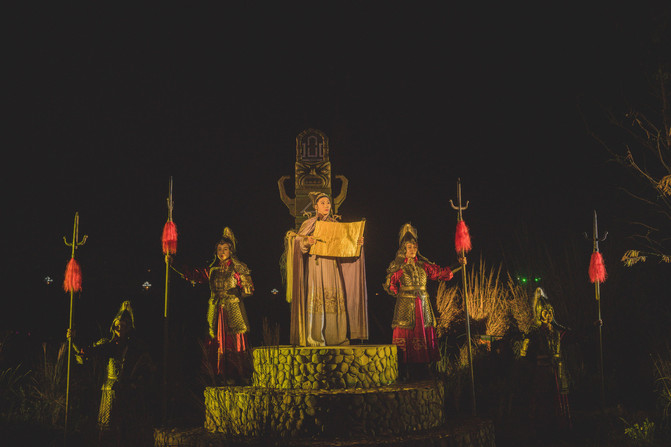
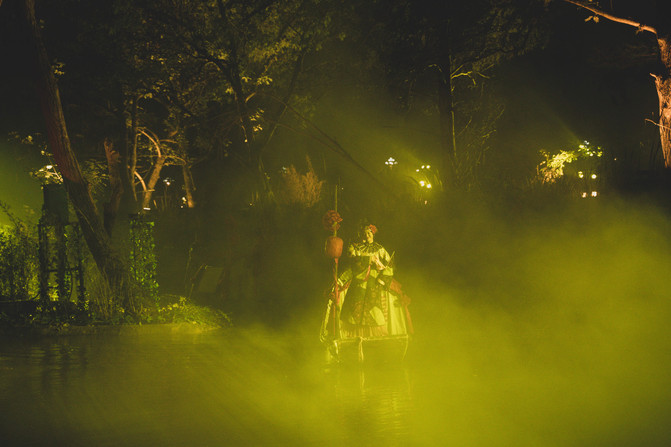
After Chen Youliang was defeated by Zhu Yuanzhang, his descendants and his subordinates were exiled by the Ming Dynasty government to the Fuchun River. They were stipulated that they could only live on boats for generations. At that time, there were nine surnames, so they were called "Nine Surnames Fishermen."
Hundreds of years have passed by, and the heroes of those days and the powerful dynasties have ultimately become nothing more than a handful of dust in history.
At that time, the fishermen surnamed Jiu continued on the water for generations and developed their own cultural system. Dragon boat robberies, water weddings, and the world-famous Wujiapi medicinal wine. The cultural inheritance of the "Jiu surnamed fishermen" was also included in the National Intangible Cultural Heritage Catalog.
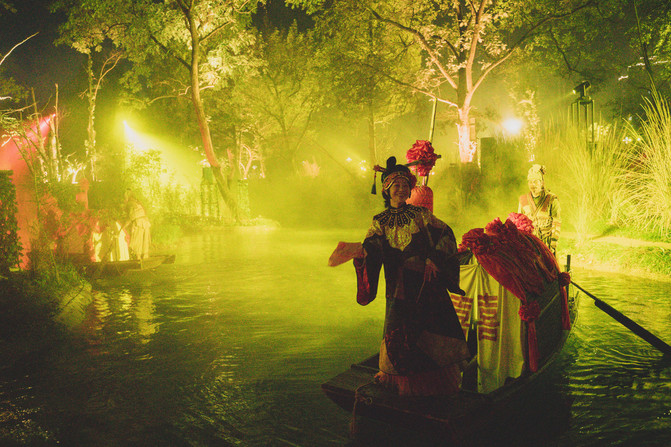
Five Realms: People·Past and Present Life
No matter where they are, ancient legends and stories are always related to beautiful love.
The fisherman surnamed Jiu is naturally no exception.

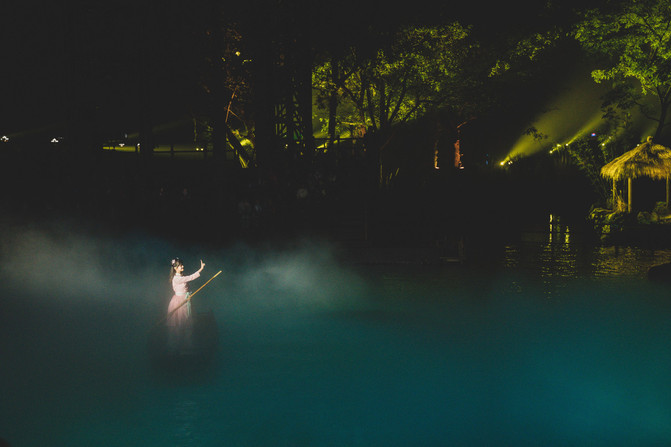
The flowing smoke clouds, the floating moonlight, and the quietly flowing Xin 'an River have witnessed many joys and sorrows, many joys and sorrows.
Back then, the Ming Dynasty government ordered that fishermen surnamed Jiu were not allowed to enter any public places, intermarry with people on the shore, and were not allowed to enter official careers.
In the era of feudal dictatorship, under such imprisonment, how much sadness and lament dissipated as the river flowed eastward.
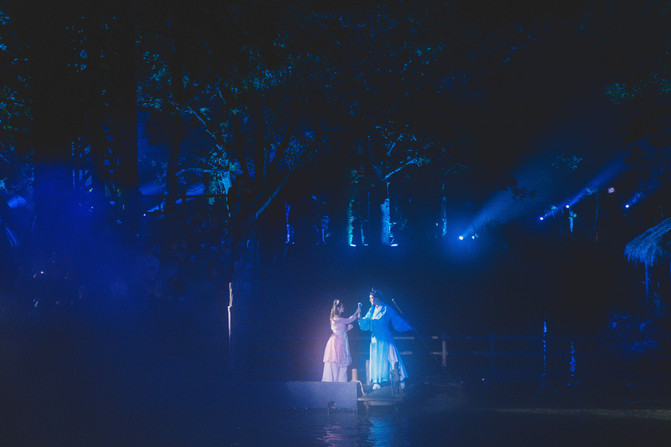


The love story of the nine fishermen shown in the performance is also a microcosm of the joys and sorrows of the people along the Xin 'an River for thousands of years.
What is gratifying is that the final outcome still ended successfully.
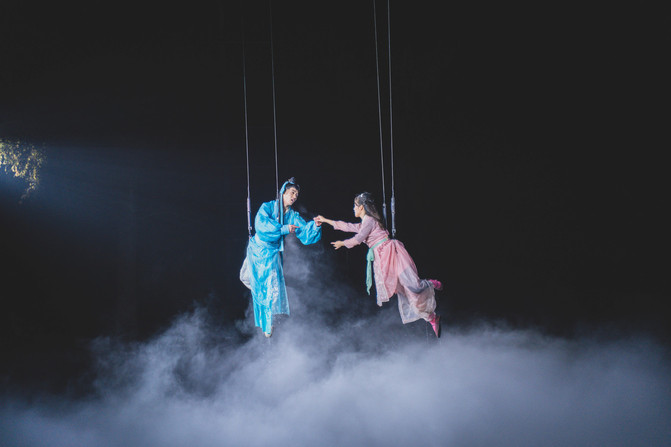

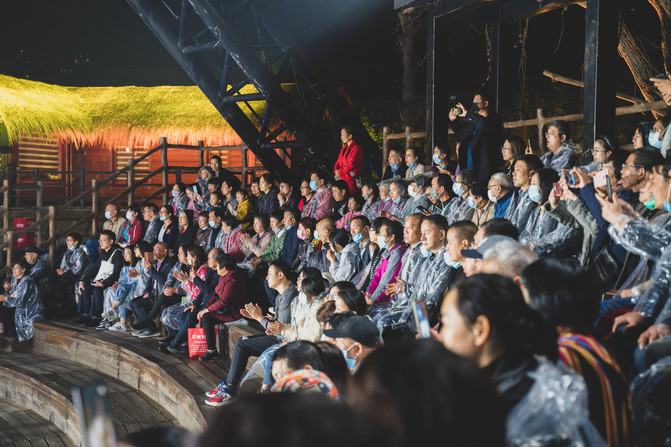
Xin 'an River's beautiful natural environment and long-standing human history gave this performance a profound heritage and connotation. After the performance, I looked at the full moon, but what came to mind was another poem.
Who saw the moon by the river? When did the river moon first shine?
Life is endless from generation to generation, and the river moon is only similar year after year.

Radisson in Jiande, by the river and the mountains, enjoy the clear sound of the four seasons
The Xin 'an River, which is "unique in mountains and rivers, originates from Huangshan Mountain and flows into the sea, outlining thousands of mountains and rivers on the land of Zhejiang.

On Nanshan Road in Jiande, Hangzhou, there is a Radisson Xin 'an Hotel. On one side is the flowing Xin' an River, and on the other side is the lush Nanshan Park. There is no better place than this.



Between the small table, the authentic Jiangnan scenery gathers on the tip of the tongue.
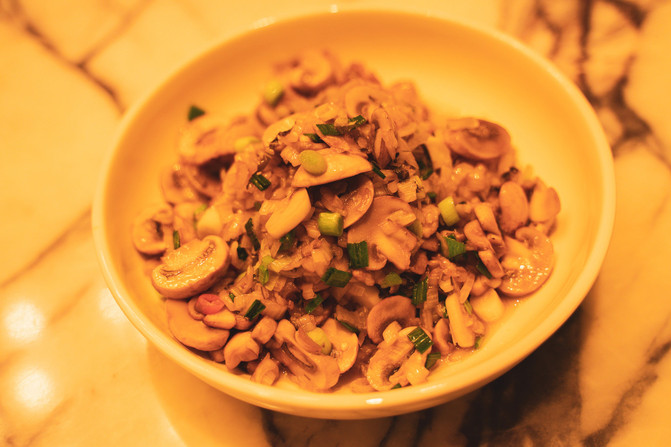


Luxurious and restrained rooms, balcony with endless scenery, and service experience that feels like home from home. Every detail reflects the hotel's thoughtfulness and care.
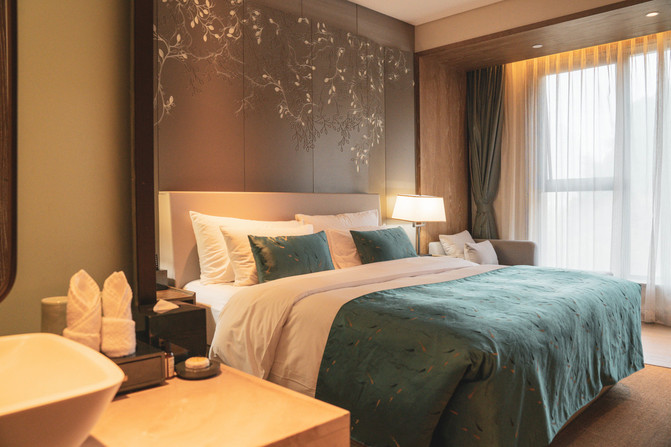


The interior collocation that can be seen everywhere and the overall structure of pure wood make the room filled with a taste of time.
This taste is very consistent with the ancient city and Xin 'an River.



The mountains and rivers are idle in the courtyard, the sound is clear at four o'clock, and watching the autumn moon on the balcony of the room at night is already a bit chilly.
I want to ride the wind and go home, but I am afraid that the jade buildings and jade spaces will not be cold high.
Dance to clarify the shadow, how it feels to be in the world.
Previous Article:In August 2019, I took a high-speed train to visit half of China-Qingdao, Shandong-Qiandao Lake-Huangshan-Guizhou
Next Article:In early summer, in Tonglu Tianzi Land, stroll through Dinosaur Valley and explore ancient karst caves
